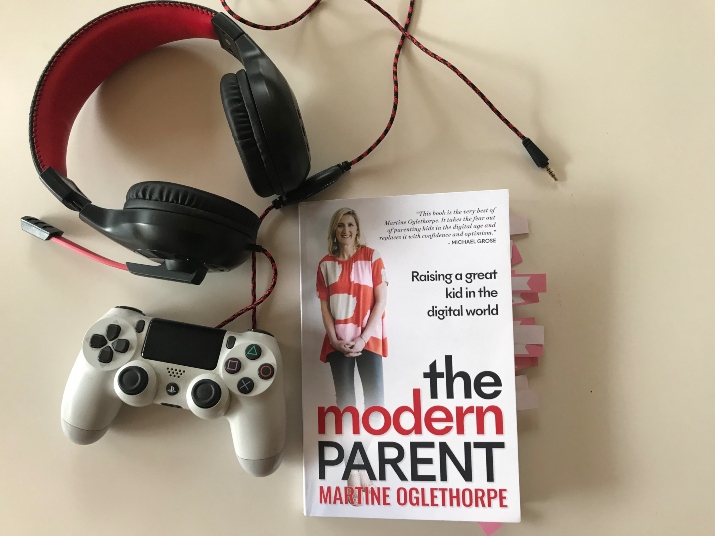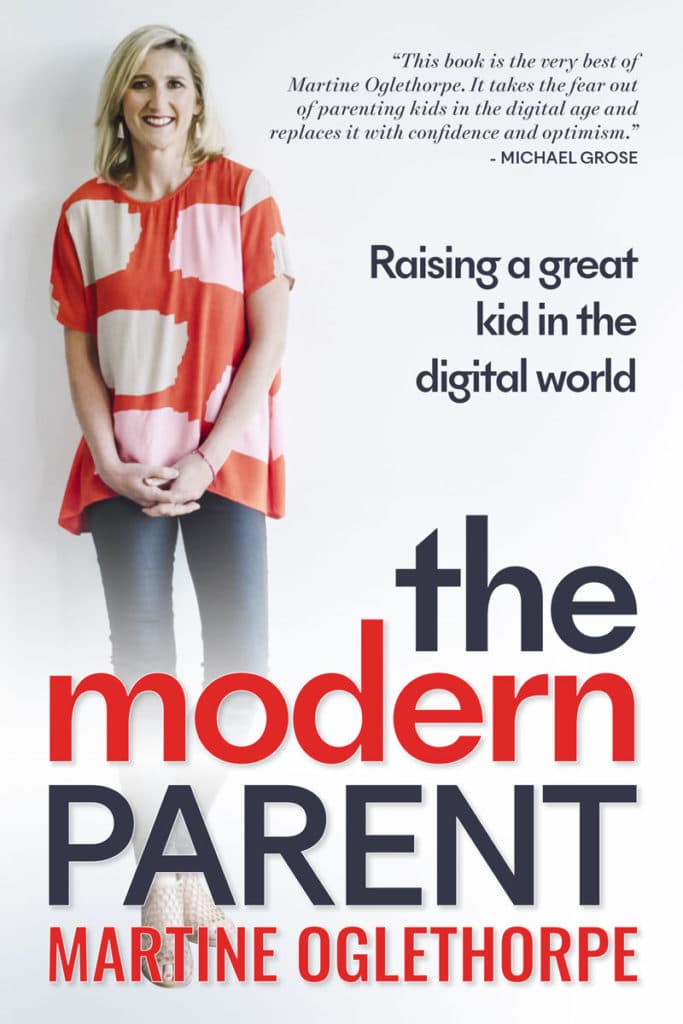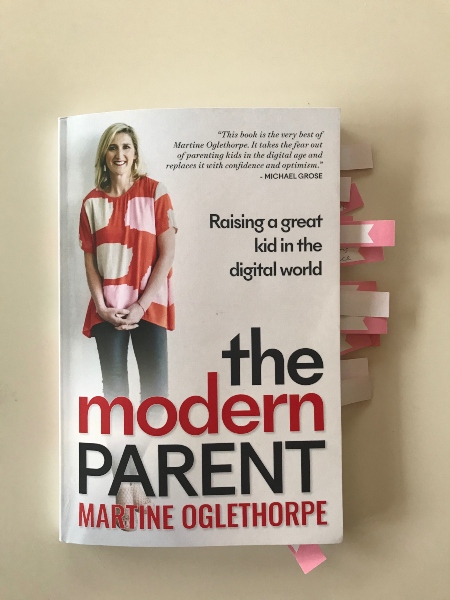
I sincerely wish I had The Modern Parent – Raising a Great Kid in the Digital World available to me to read about seven years ago. Our eldest child was 13 then and the digital world for kids was really taking off. I made so many mistakes/missteps along the path of trying to find a way of managing screen time with our first teenager (just search for teenagers and technology on the blog and you will find them!).
I had fallen into the trap of demonising technology. There were so many doom and gloom articles about the detrimental impact of tech on kids, often written by experts who I wondered if they even had teenagers or actually understood the practicality of dealing with the digital world and teens.
Martine Oglethorpe, author of The Modern Parent, however, has expertise in both realms. With a background in education and a Masters in Counselling, Martine is able to use her extensive professional experience in conjunction with the personal experiences of raising 5 children, to give a realistic approach to parenting today.
I am lucky enough to consider Martine a friend and I know she completely gets kids and teenagers, understands the dynamics of families and the importance technology plays in the lives of children in the modern world.
The Modern Parent Book is an essential handbook for any parent. There are a few parenting books that I recommend to parents and this has been added to my list of must haves.
Format of the book

The book is very easy to read. It is broken down into small chapters with a key focus for each, starting with debunking some of the key myths and mindsets about the digital world and kids, and ends with some general but amazingly useful tips on parenting a great kid in this digital world.
At the end of each chapter there are two sets of questions:
- Things to ponder – questions for parents to ask ourselves.
- Conversations to have with your kids – questions to sit down to start a calm two-way conversation with our kids on topical and important digital issues.
And for a book talking about the digital world, you don’t have to understand the latest apps, networks or phones to be able to read the book. Martine’s approach is to share overarching principles, guiding behaviours, warning signs etc so the book won’t date just because the next big social media network comes along and knocks Tik Tok off its perch as the favourite hangout of teenagers.
Audience for the book
While I think parents of pre-teens and teenagers will get the most immediate use and have their sanity saved by it, kids are on devices from younger and younger ages, so if your child uses a digital device then this book is for you.
Don’t look for it to give you time limits for age groups or what times are best for kids to be online etc, because it doesn’t have that. What it has which is much more valuable is a series of three questions you can ask to determine if your child is having too much screen time:
- What is your child doing on the screens?
- What effect is the screen time having on your child?
- What are they missing out on?
Martine has further sets of sub-questions for each of these key questions and they can really help move parents from demonising technology to understanding it can be beneficial when screen time makes up part of a child’s varied daily/weekly activities.
My key takeaways

As you can see by the number of tags on my copy of the book Martine sent me, there were many takeaways for me – so I basically suggest you grab the book from her website here, it is completely worth every cent! But I decided I would shortlist my three personal key takeaways from The Modern Parent – Raising a Great Kid in the Digital World:
- Critical thinking – kids need to be taught to think critically so they have the skills to be able to evaluate the content they consume online for truthfulness, relevance and appropriateness regardless of what device or platform they are on.
- Consent – kids need to understand what consent means and how it applies to them and to others online.
- Mistakes – kids will make mistakes online just like they do in real life. As parents, how we react to these mistakes will determine what our kids tell us about their ongoing online experiences.

